Image credits below
“I am not free while any woman is unfree, even when her shackles are very different from my own.” — Audre Lorde.
Whenever there is a crisis, it is always the women and girls that are most affected and their security is often at risk especially when the rule of law breaks down. In a world where inequality seems to be the order of the day and patriarchy seems to be the norm, women are rising, leading the charge, and becoming the essential changemakers and activists their families, communities, and other women across the world desperately need.
Throughout history Black women have stood bravely in the face of obstacles, fighting for the rights of African Americans, women, and working people. The roles played by some of these women in the social and civil movements cannot be forgotten.
Most Americans know Coretta Scott King, the widow of Martin Luther King, Jr., and a formidable force in her own right. Women like Rosa Parks, Dorothy Height, Harriet Tubman, and many others helped pave the way for some of the rights and opportunities we are benefitting today. They stood up for justice, equality, and the empowerment of Black communities.
To date, Black women have continued to be at the forefront of battles for the rights of children, women, and men, building on the foundations laid by their predecessors. From politics to the arts, entrepreneurship to activism, here are Black women activists who have shaped our past, are impacting our present, and are paving the way for our future.
Ida B Wells (1862 – 1931)
She was a journalist, lecturer, civil rights leader, and the leading activist against lynching during the late nineteenth and early twentieth centuries. The daughter of former slaves, this activist for women’s rights and the suffrage movement started documenting the widespread practice of lynching, particularly the lynching of Black men, in the United States during the 1890s. She traveled the world and risked her life to expose these killings and other brutal actions meted out against African Americans.
One of her best-known works is “Southern Horrors: Lynch Law in All Its Phases,” published in 1892, which garnered an international audience and made her the most visible anti-lynching activist in the nation. In 1922 she supported an anti-lynching bill proposed in Congress.
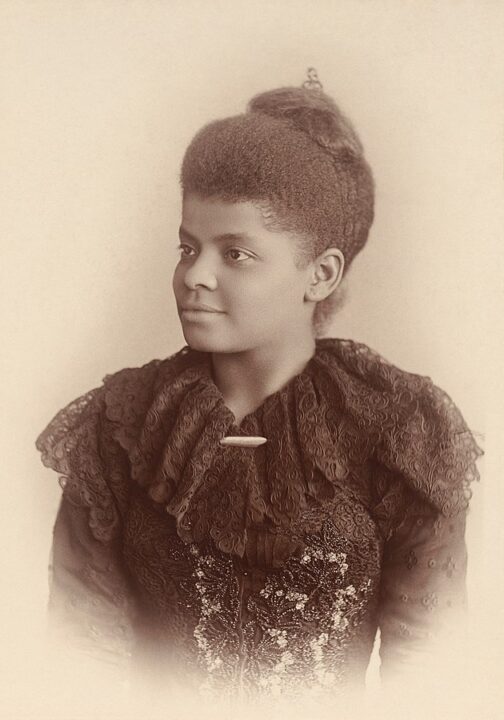
Photograph of Ida B. Wells by Mary Garrity, Restored by Adam Cuerden. Public Doamin, via Wikimedia Commons
Ida B. Wells-Barnett remained a crusader for justice and never stopped working for the causes she believed in until her death on March 25, 1931. In 2020 she was posthumously awarded the Pulitzer Prize for “outstanding and courageous reporting.” Her activism remains an inspiration for several generations to come.
Dorothy Height (1912 – 2010)
Height was a civil rights and women’s rights activist focused primarily on improving the circumstances and opportunities available to African-American women. She challenged racism and sexism at an early age, setting the stage for a lifetime of activism.
She worked with Martin Luther King Jr., A. Philip Randolph, Roy Wilkins, Whitney Young, John Lewis, and James Farmer — sometimes called the “Big Six” of the civil rights movement — on different campaigns and initiatives. She was also one of the organizers of the famed March on Washington in 1963, and stood close to King when he delivered his “I Have a Dream” speech.
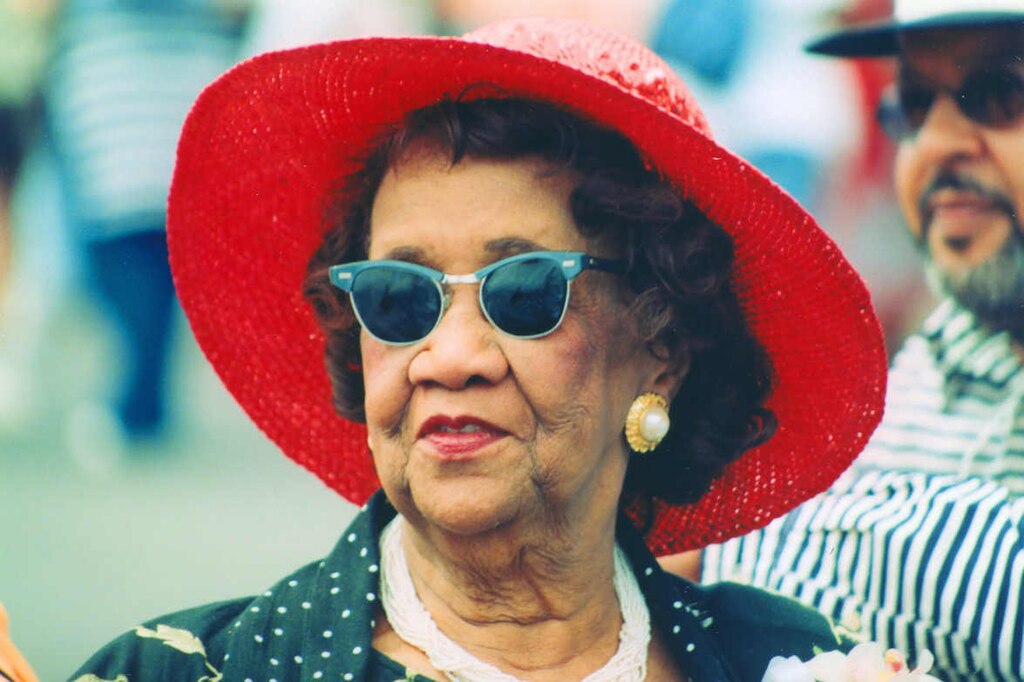
Photo source: Wikimedia Commons
The numerous honors bestowed upon her include the Presidential Medal of Freedom (1994) and the Congressional Gold Medal (2004). On February 1, 2017, the United States Postal Service kicked off Black History Month with the issuance of the Dorothy Height Forever stamp honoring her civil rights legacy.
When Height left the world in April 2010, she left behind a lasting legacy that continues to support Black women around the world.
Fannie Lou Hamer (1917 – 1977)
She attended a meeting hosted by the Student Non-Violent Coordinating Committee (SNCC) In 1962, which was a turning point in her life. Hamer joined the civil rights movement and helped register Blacks to vote in Mississippi. She worked for the Student Nonviolent Coordinating Committee, which focused on racial segregation and injustice in the South. She also co-founded a political party, the Mississippi Freedom Democratic Party, and challenged a president.
During her lifetime, Hamer organized a strike for Black cotton pickers, worked alongside the National Council of Negro Women to establish farm cooperatives and banks for poor residents to have better food access, advocated for more federal funding for Head Start programs and housing, and helped form the National Women’s Political Caucus to encourage women’s participation in politics.

Photo source: National Museum of African American History and Culture
All these were not a walk in the park as she paid a price with police beatings that left her permanently disabled, and lost a daughter because no hospital in Mississippi would treat a child of Fannie Lou Hamer. Even when some white supremacists sprayed 16 bullets into the house where she was staying, Hamer did not give up the fight for justice, freedom, and equality.
In 1977, Hamer passed away, leaving behind a legacy for the activists of today to model. Her efforts to give voice to marginalized groups were foundational to the Civil Rights movement, the women’s rights movement, and the disability rights movement.
Coretta Scott King (1927 – 2006)
Her husband may have led the civil rights movement, but Coretta Scott King was herself a powerful and dedicated activist. From civil rights to gay rights to opposing apartheid, the Vietnam War, and ending poverty, Scott King made numerous contributions to the struggle for social justice and human rights throughout her life.
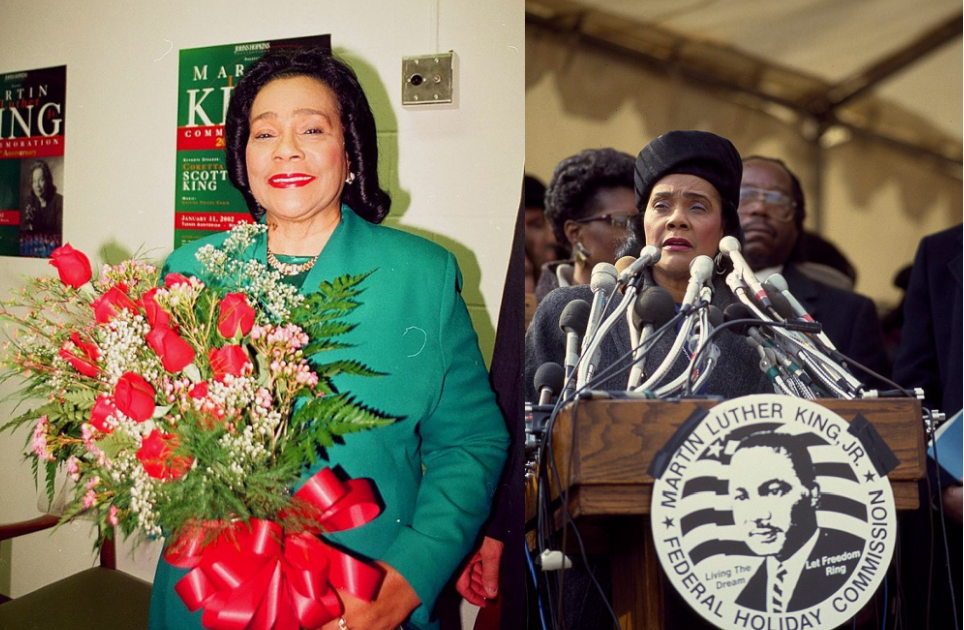
Photo source: John Mathew Smith & www.celebrity-photos.com via Wikimedia Commons
During the 1980s, Coretta Scott King reaffirmed her long-standing opposition to South African apartheid, taking part in a series of sit-in protests in Washington that prompted nationwide demonstrations against South African racial policies. In 1986 she traveled to South Africa and met with Winnie Mandela.
Until her death on January 30, 2006, Coretta Scott King carried the message of nonviolence and social justice to almost every corner of the globe.
Funmilayo Ransome-Kuti (1900 – 1978)
Many may remember her as the first woman in Nigeria to drive a car and the mother of pioneering Nigerian musician Fela Kuti but her life was so much more than this. Funmilayo Ransome-Kuti’s fearless activism changed history. She was a major champion for women’s rights and arguably one of the most influential leaders of 20th-century Nigeria.
Ransome-Kuti was one of the women at the forefront of Nigeria’s fight against the British colonial masters. She led protest marches of up to 10,000 women, a resistance movement against the unfair taxes imposed on market women by the British colonial government. She led the campaign for extending the right to vote to women. She was the first African woman to visit China, where she delivered lectures about Nigerian women’s rights. She also had ties to women’s organizations in Ghana, Algeria, and Egypt, and was elected the vice-president of the Women’s International Democratic Foundation in 1953.
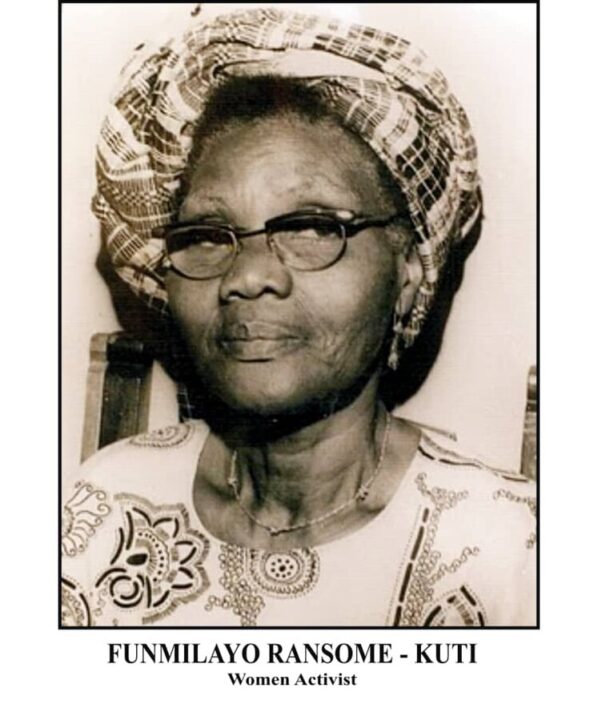
National Library of Nigeria, CC0, via Wikimedia Commons
She remained active, fighting for women’s rights until she was thrown from a second-floor window by some Nigerian soldiers who raided her son Fela’s Lagos compound on February 18, 1977. She never recovered from the injuries she sustained and died in Lagos General Hospital on April 13, 1978, at the age of 77.
Hannah Cudjoe (1918 – 1986)
The story of Ghana’s independence cannot be told without this fearless activist. Known as “Convention Hannah”, she was Ghana’s leading woman nationalist in the struggle for independence from British colonial rule. Her activism did not stop with independence as she also worked tirelessly to improve the lives of women in Ghana.
When the so-called Big Six of the United Gold Coast Convention (UGCC) were arrested in 1948, Cudjoe boldly staged demonstrations and campaigned for their release, even when the men around had given up.
Not only was she a powerful force in Ghana’s history and the fight for national independence, but she also proved to be a powerful champion for women’s rights.
Ruby Dee (1922 – 2014)
Actress Ruby Dee is the very definition of a freedom fighter, who did not only talk the talk but walked the walk. She and her husband, the late Ossie Davis, were well-known civil rights activists who fought for equal opportunities for African-Americans in the performing arts. They supported the most radical wings of the Black liberation movement and were friends of Martin Luther King Jr. and Malcolm X.
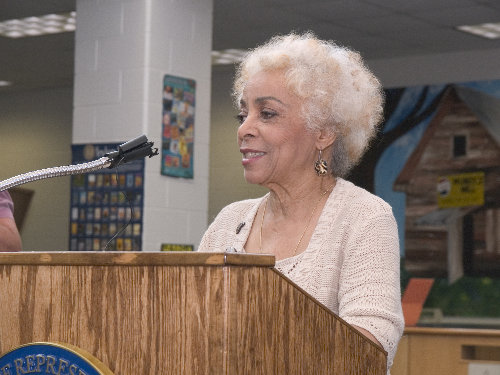
Photo source: Wikimedia Commons
She defied segregation-era stereotypes and achieved a remarkable career which included lead roles in films and on Broadway, as well as a powerful voice in the civil rights movement, most notably as the emcee of the 1963 March on Washington.
Until she took her last breath on June 11, 2014, at the age of 91, she never gave up the fight for justice, freedom, and equality. The impact of her work lives on, creating a lasting foundation that benefits Black women globally.
Wangari Maathai (1940 – 2011)
Simultaneously liberating women and nature, Wangari Maathai is internationally recognized for her persistent struggle for democracy, human rights, and environmental conservation. She founded the Green Belt Movement, which focused on reforestation to promote sustainability and establish financial income for women in the region.
Her grassroots efforts to promote conservation and women’s rights earned her the Nobel Peace Prize in 2004, making her the first African woman to win the prize. In the words of the Nobel Committee: “She thinks globally and acts locally.” Maathai, who played an active part in the struggle for democracy in Kenya was the first female professor ever in her home country of Kenya.
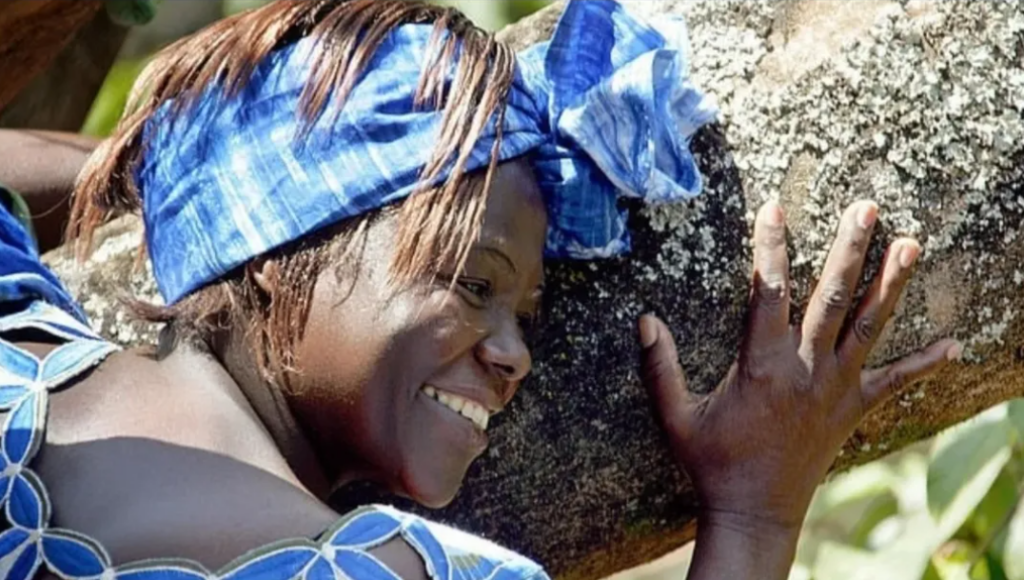
Photo source: Wangari Maathai / Instagram
Throughout her life, she pursued movements toward both environmental conservation and women’s empowerment regardless of the associated obstacles. She died on 25 September 2011, leaving a legacy of sustainable development and environmental stewardship.
Leymah Gbowee (1972)
Leymah Gbowee is a Liberian peace activist known for leading a women’s nonviolent peace movement, Women of Liberia Mass Action for Peace, that played a crucial role in ending the Second Liberian Civil War in 2003. In 2011 she received the Nobel Peace Prize for her work in organizing this notable event. Her activism is focused on promoting peace, women’s rights, and social justice.
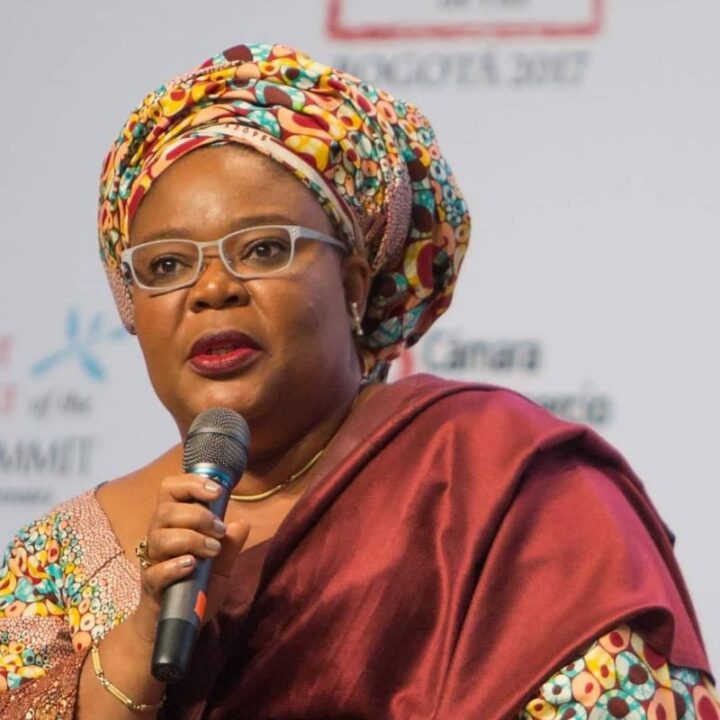
Photo source: Instagram | Leymah Gbowee
Gbowee has also received several awards including the 2007 Blue Ribbon for Peace award from Harvard University and was featured in the 2008 documentary, Pray the Devil Back to Hell which showcased the attempts of Liberian women to bring an end to Liberia’s civil war. She became a symbol of hope and resilience for women facing violence and oppression and has become recognized internationally for mobilizing women.
Gbowee continues to advocate for women’s rights and peacebuilding initiatives, both in Liberia and internationally, inspiring future generations of activists.
Halima Aden (1997)
This Somali-American fashion model and activist has been redefining traditional standards of beauty, shifting the fashion industry’s gaze away from women’s bodies and diversifying the modeling industry. She was born at Kakuma Refugee Camp in Kenya and moved to the United States at 7.
Fast-forward to today and she is making history as the first hijab-wearing fashion model on the runways in New York and Milan. In 2016 she wore a burkini and hijab during the Miss Minnesota USA Pageant. From a refugee to a famous public figure, she has become a vocal advocate for the rights of refugees and Muslim women.

Photo source: Instagram | halima
In 2018 Halima became a UNICEF ambassador, leveraging her platform to advocate for children’s rights and the needs of refugees, while also using her platform to raise funds and awareness for the global refugee crisis. According to her, refugees need hope and opportunities, not pity: “What we want is to be invited to the conversation.”
Rugiatu Turay
As one who experienced first-hand the pain and degradation that comes with female genital mutilation, Turay has been working and campaigning tirelessly to end the abusive cultural practice of female genital mutilation (FGM). In 2000, she decided to launch the Amazonian Initiative Movement with other women to prevent FGM among refugees, and now, she’s on a mission to eliminate it across West Africa.

Photo source: Amazonian Initiative Movement / Facebook
Her activism involves educating communities about the harmful effects of FGM. She is a powerful example of how one person can make a significant difference in the fight for human rights. Her resolve in combatting female genital mutilation has raised a far-reaching awareness not only in Sierra Leone but across Africa and even around the globe, impacting the lives of women and girls.

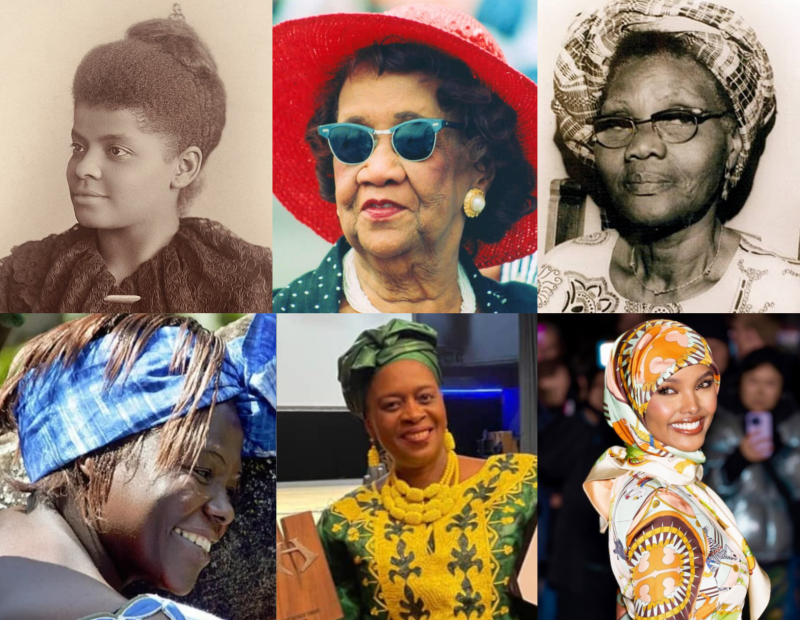



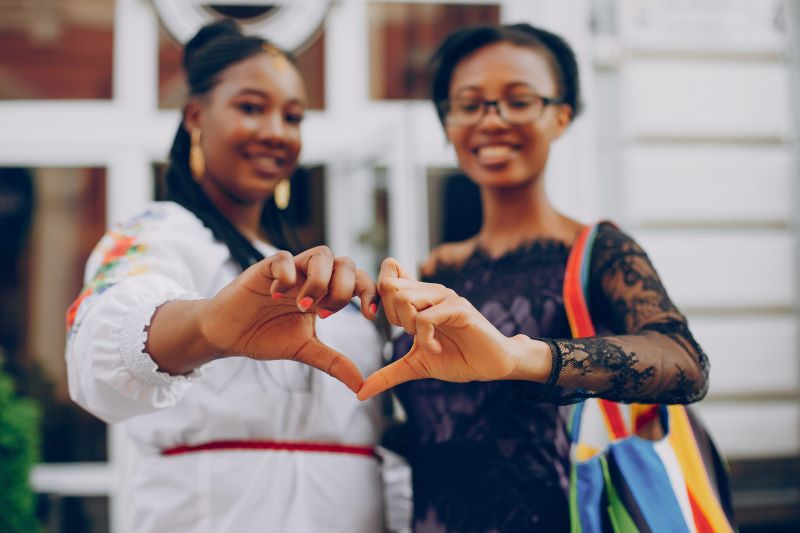
Absolutely powerful and deeply moving—thank you for highlighting these incredible women and their legacies.
It’s so important that we continue to uplift and share the stories of Black women activists who have been the backbone of so many movements, yet are often overlooked in mainstream narratives. From Ida B. Wells’ fearless journalism to Leymah Gbowee’s unshakable push for peace, and Halima Aden redefining beauty and representation—each of these women has reshaped the world in their own bold way.
What really stands out is the diversity of their contributions—civil rights, environmental justice, women’s rights, anti-colonial resistance, and more. They weren’t just fighting for change—they were the change. It’s both humbling and inspiring.
This piece is a powerful reminder that activism isn’t one-size-fits-all. It shows how resistance can look like protest, art, education, fashion, or even planting a tree. We owe so much to these pioneers, and it’s on us to keep the momentum going.
Thank you again for this tribute—truly a must-read.